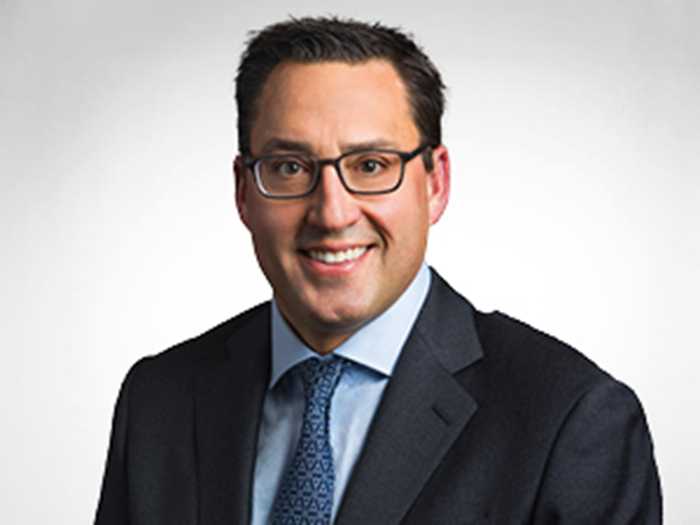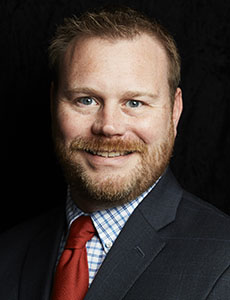Most People Agree Insurance Needs to Be More Diverse. What the IICF Is Trying to Do About It
Just over two years since the murder of George Floyd and the calls for social justice that ensued, we finally had the opportunity to get together in person, as an industry, to talk about DEI and bring ourselves another step closer toward a fully diverse, equitable and inclusive workforce.
In early June, industry professionals joined together to attend the Insurance Industry Charitable Foundation’s Inclusion in Insurance Forums.
In New York City, insurance companies from across the northeast region came together to share innovative ideas and actionable advice that can help advance DEI and make the industry a better place. Later in the month, other industry professionals did the same in Los Angeles, Chicago and Dallas.
We have started to see outcomes of industry efforts regarding diversity, with a smaller gender gap at all levels and more nonwhite employees in the insurance workforce than years past.
However, as we have learned over the past few years, a diverse workforce does not always mean an organization is inclusive or equitable. Speaking at the forum, Nina Boone, North American Leader for D&I, Korn Ferry shared that 43% of polled employees are reconsidering their jobs because their company is not doing enough in terms of DEI.
The IICF recognizes the importance of advancing DEI and knows that the insurance industry is better and can make more of an impact when we come together and work together for change. Below are some of the top ideas shared at the forum detailing how to advance equity and inclusion throughout our industry.
Inclusive Sustainability
The definition of DEI is ever broadening. Nina Boone of Korn Ferry married DEI and ESG in her session on inclusive sustainability. She discussed the idea of “this,” and how “this” can be seen as a harmful microaggression in DEI.
At the beginning of the pandemic, when the supply chain was first disrupted and the world was on lockdown, people asked the question, “How long do you think ‘this’ will last?” While most were talking about the pandemic, the question also applies to DEI initiatives within organizations. People questioned how much longer their organization would look for diverse candidate pools, or how much longer their organization was going to prioritize diversity.
Boone flipped the script and asked, “What if we embrace the ‘this?’” Embracing a diverse candidate pool and encouraging people to share what makes them different can only help an organization bring new ideas to the table and approach challenges from a different perspective. She encouraged leaders to believe that their entire team is capable, to believe that everyone has the capacity to learn, develop and expand their contribution.
The Science of Inclusion
Dr. Jay Van Bavel, associate professor of Psychology & Neural Science, Stern School of Business in Management and Organizations, New York University, shared important insight into the science behind inclusion during his remarks.
Many organizations are now using AI powered facial recognition products, whether in their office for safety purposes, or in their products. While many of these products boast a 90% accuracy rate, they are often still biased against women and nonwhite people. Such products, Dr. Van Bavel pointed out, demonstrate how scaling innovations too quickly can leave companies open to the biases or blind spots.
Such biases and blind spots are why diverse teams of people are so important. Different opinions and perspectives ensure that biases are lessened, and blind spots are pointed out and rectified.
Dr. Van Bavel went on to discuss how diversity is important, but only if members of the group feel included. Psychological safety is the ability to be oneself, including making mistakes, without fear of negative consequences to self-image, status, or career. It is important for teams to have psychological safety and empathetic leaders to be successful.
He encouraged leaders to:
- Prioritize other voices
- Hold each other accountable
- Start with one thing
- Find a role model and be a role model
Continuing the DEI Momentum
Cheryl Rosario, head of DEI & CSR, Munich Re encouraged industry professionals to continue the momentum of DEI.
When George Floyd was killed in 2020, it sparked a social movement that has lasted through 2021 and into 2022. This social movement pushed many organizations in the insurance industry to prioritize advancement of DEI, but as many others have, Rosario questioned how long this momentum will last.
In August 2020, a PEW Research center found that 52% of Americans thought it is very or somewhat important that companies and organizations make public statements about political or social issues, but that percentage rose substantially for people of color. Many organizations leaned into this commitment by taking action to invest in historically black colleges and universities (HBCUs) or other social justice organizations.
While the idea was there, these investments were not always done in a sustainable or authentic way. Rosario stressed that making a commitment is not always enough, it is important to also see the accountability and results.
Feelings of inclusion and equity are on a sharp decline and as such, Rosario encouraged leaders to turn to a people first mindset to keep up DEI momentum in a sustainable and authentic way.
Good Intentions to Actionable Change
Michelle Silverthorn, best-selling author, keynote speaker, and Founder & CEO of Inclusion Nation, wrapped up the event with a session on turning good intentions into action and moving forward in the work of transformative change.
Silverthorn shared a scenario where a legal assistant, a lawyer, two judges, a firefighter, a doctor and a bartender are all in the bar. At the end of the scenario, she asked the group if anyone envisioned any of these people as women, or as nonwhite people. The point of this exercise was to display how as a society we have been conditioned to ascribe certain genders and races to certain professions and classes.
Silverthorn challenged the audience to be the ones to make this change. She shared that many people want change to happen, but that they don’t want to change themselves or do the work to make the change. As an industry that helps and impacts so many, Silverthorn urged every individual in the room to take an action that can help make change.
While the industry has done a lot of work in becoming more equitable and inclusive over the past few years, we still have a long way to go.
IICF works every day to bring the industry together to make the world a better place through initiatives and projects that come out of our IICF IDEA Council and various committees. However, many times, it is the conversations and learnings that come out of convening as an industry at forums such as this one that truly help advance ideas into actions. &









